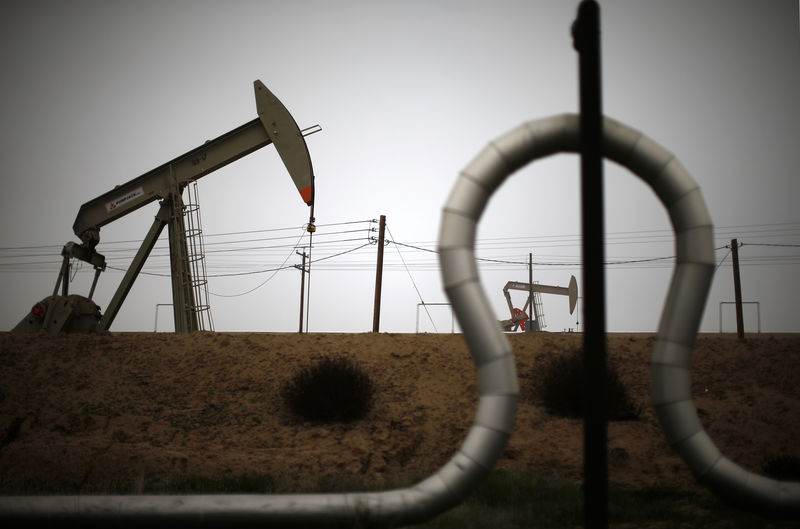By Collin Eaton (NYSE:ETN)
HOUSTON (Reuters) - North American oil producers that have been increasing spending to take advantage of this year's higher prices will dial back as November's reversal fuels worries about a 2019 surplus, energy executives say.
U.S. light sweet crude settled on Friday at $50.42 a barrel, down nearly 23 percent since October and the lowest in more than a year over worries about oversupply and the Sino-U.S. trade war. The drop comes as many oil producers are assembling drilling budgets for 2019.
"Everybody's going to get hit," said Cole Frederick, co-founder of Peak Land Services, which helps oil companies acquire properties in Texas shale fields. He noted, however, that November's price is well above the lows that put hundreds of smaller companies out of business in early 2016.
"I was praying for $50 oil two years ago when the price was $26," Frederick said in an interview. "If you're a smaller guy, you've got to be more selective."
Oil in West Texas and North Dakota traded at discounts to the U.S. benchmark of around $6 and $15 a barrel, respectively, as production outran transport space to carry crude to markets. In Western Canada, heavy oil on Friday fell to a $37 discount to U.S. crude futures.
"A lot of corporations are going to have a heck of a time determining what level of expenditure they can handle next year," Andy Mah, chief executive of Calgary-based Advantage Oil & Gas, told Reuters. His company may reduce its 2019 budget if weak prices persist.
Smaller Texas producers had already curbed some activity, said Ryan Sitton, who sits on the Texas Railroad Commission, the state's energy regulator.
"Six weeks ago some of these were profitable and now they're break-even," said Sitton. "The (price) swing has been large enough that we have some companies that are no longer generating free cash flow."
Some producers have alleviated the price drop by locking in favorable prices for fourth-quarter production using hedges that will lessen the near-term impact on profit and activity.
"All we've seen is increases" in drilling activity, said Clint Concord, a sales manager at drilling services firm Byrd Oilfield Services in Midland, Texas. The effect of falling crude prices "takes a while to hit the field."
Byrd this year doubled the number of well jobs to 350 per month and the company added several employees each week to take on work for producers, Concord said.
